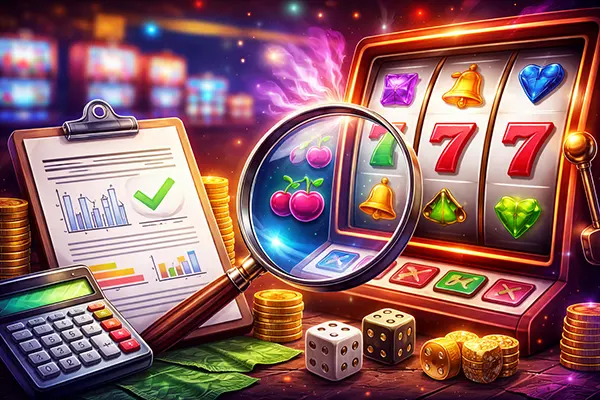
Player Rights in the Online Gaming Industry: Legal Trends in 2025
The global online gaming industry is evolving rapidly, and with it, the legal frameworks that protect players’ interests. In 2025, new legislative updates across major jurisdictions — including the European Union, the United Kingdom, and the United States — have significantly strengthened player protection. Understanding your rights as a player has never been more important, from fair gaming practices to the right to self-exclusion and secure withdrawals.
Core Player Rights in 2025
In 2025, player protection laws have become more transparent and consumer-oriented. Every licensed online gaming operator must now clearly disclose all terms related to bonuses, payout structures, and data handling. The right to information ensures that players are never misled about game odds, payout percentages, or wagering conditions.
Another key element is the right to set personal limits. Many regulators now require online gaming companies to offer tools allowing players to restrict deposits, bets, or gaming time. This change helps players maintain control over their gaming activity and avoid potential addiction risks.
Additionally, self-exclusion programs have become standardised across Europe and the UK. Players can voluntarily suspend their accounts, and operators must respect and enforce this decision across all affiliated brands. This right to self-exclusion is crucial in maintaining responsible gambling behaviour.
Access to Regulators and Dispute Resolution
Players also have the right to seek help directly from regulatory bodies. In the EU, new online portals now allow users to submit complaints digitally to authorities such as the Malta Gaming Authority (MGA) or the UK Gambling Commission. These agencies are legally obligated to review cases of unfair treatment, delayed payments, or misleading promotions.
Independent dispute resolution services have expanded globally, providing impartial assessments when disagreements arise between players and gaming operators. In 2025, these services are accessible in multiple languages and must respond within a defined timeframe, increasing transparency and fairness.
The protection of player data has also gained legal recognition as a fundamental right. Compliance with the EU’s GDPR and its international equivalents ensures that personal and financial data cannot be exploited or transferred without explicit consent.
Recent Legal Developments in Major Jurisdictions
Europe has led the way in implementing stricter player protection measures. In 2024–2025, the European Commission introduced a new set of harmonised standards aimed at unifying licensing and compliance processes. These updates include stronger identity verification systems and mandatory reporting for suspicious activity to prevent fraud and money laundering.
In the United Kingdom, amendments to the Gambling Act 2005 have further tightened advertising restrictions and transparency requirements. Operators are now obligated to provide real-time tracking tools that display a player’s total expenditure and session duration, improving awareness and control.
Meanwhile, the United States continues to modernise its state-level frameworks. Following the rapid expansion of legal online gaming, several states — including New Jersey, Michigan, and Pennsylvania — have revised their laws to strengthen consumer rights. Enhanced verification, anti-addiction measures, and secure withdrawal timelines are now mandated nationwide.
How Legislation Impacts Bonuses and Withdrawals
New regulations have significantly affected how bonuses and promotions are structured. Operators can no longer use ambiguous wording or unrealistic wagering requirements. Each bonus must specify the conditions for activation, playthrough limits, and expiration dates in clear terms.
Withdrawals have also been standardised. Players in 2025 benefit from faster payout processing and a legal requirement that funds cannot be withheld without justified reasons. Regulators now monitor average withdrawal times and can fine operators who fail to meet the standards.
Additionally, player verification during withdrawal has become more secure yet user-friendly. Digital identity systems integrated with national databases allow for smoother verification, reducing both fraud and unnecessary delays.

Practical Guide: Protecting Your Rights as a Player
Ensuring your safety and legal protection in the online gaming space starts with choosing licensed operators. Always check for certification from recognised authorities such as the UK Gambling Commission, the Malta Gaming Authority, or the Danish Gambling Authority. These bodies guarantee that the operator adheres to fair gaming and data protection rules.
It is also essential to read the full terms and conditions before accepting any bonuses or participating in promotional campaigns. Look for clear wording about wagering requirements, expiration dates, and withdrawal conditions. If any clause seems unclear, reach out to the operator’s support team before proceeding.
Finally, every responsible player should maintain a checklist: set personal limits, monitor spending regularly, and use self-exclusion tools when needed. If problems arise, contact official dispute resolution services or national regulators immediately — they are now required to respond promptly and ensure justice.
The Future of Player Empowerment
As technology continues to shape the gaming industry, player rights will remain a central topic. In the coming years, we can expect the introduction of AI-driven compliance tools that detect harmful gaming behaviour and ensure transparent communication between players and operators.
Regulators worldwide are also moving toward data-sharing frameworks that allow faster resolution of cross-border disputes. This trend aims to make the entire online gaming ecosystem safer, fairer, and more accountable.
Ultimately, 2025 marks a turning point where the balance of power shifts toward the player. Understanding and exercising your rights is no longer optional — it is the foundation of responsible, transparent, and fair online gaming.




